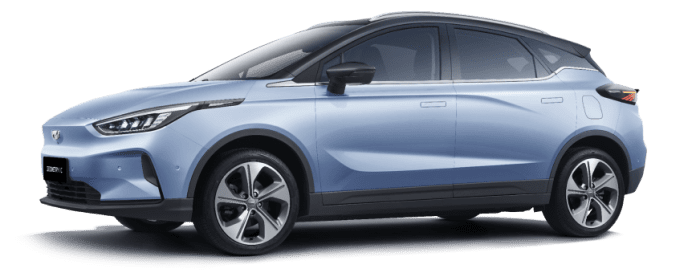The possibility of a more budget-friendly Tesla, often referred to as “Model 2” or “Model C,” seems to have fizzled out. A Reuters report suggested the project was abandoned, a claim met with dismissive rebuttals from Elon Musk, who provided no concrete counter-details. Musk’s subsequent social media responses hinted at a pivot towards a robotaxi project, leaving the future of an accessible Tesla passenger car uncertain.
Who Will Fill the Vacuum Left by Tesla’s Model C?
Amidst the speculations, the query arises: which manufacturer could step in to fill the void with a low-cost, globally appealing electric vehicle (EV)? Tesla’s brand has a universal allure, something that a ‘Model C’ could greatly benefit from, as evidenced by the impressive global sales of the pricier Model Y. Here, we explore who could be up to the task.
BYD: A Potential Contender?
BYD, a powerhouse in the EV industry, emerges as a frontrunner. With sprawling global operations, BYD certainly has the capacity to manufacture affordable, attractive EVs. However, there are caveats. Firstly, BYD lacks Tesla’s social media allure which transcends markets. Secondly, BYD’s varied portfolio diverges from Tesla’s more focused approach, potentially diluting the impact a singular ‘Model C’ equivalent could have had. Finally, despite their large footprint, BYD’s entrance into the U.S. market is still wanting. Although the BYD Dolphin and Seagull/Dolphin Mini warrant anticipation, they will not directly equate to the ‘Model C’ that could’ve been.
Geely and Its Sub-Brands: Filling the Gap?
Next on the list is Geely, the automotive giant with subsidiaries like Zeekr and Polestar under its belt. A brand like Zeekr could potentially lock horns with Tesla, but with low production and sales volumes, it’s unclear what model could match the scale envisioned for Tesla’s economical EV.
Chinese Startups: Ambitious but Limited
The likes of NIO and Xpeng, Chinese startups lauded for their design and tech in line with Tesla’s ethos, must also be considered. However, their scale pales in comparison to Tesla, and their geographical reach beyond China is negligible, especially when contrasted with BYD’s wider span.
Global Auto Giants: Unlikely Alternatives
Although many might speculate about other established automakers such as BMW, Audi, Ford, GM, Toyota, or Honda, stepping in, they do not present themselves as serious contenders to assume the role the ‘Model C’ could have played.
The Implications of Losing a Tesla “Model C”
Without the Tesla Model C, the automotive world stands to lose significant ground. No single model or automaker appears ready to fill the exact niche Tesla’s affordable car would have, symbolizing a missed opportunity to accelerate the electric transition. Yet, the collective offerings from various brands might eventually create a diverse market, fulfilling different preferences and possibly compensating for the absence of Tesla’s “Model C.” This diversity is essential; it drives the prominence of EV markets in regions like China and Europe, which outpace that of the U.S.
The prospect of not having a Tesla Model C on the market is a sore point for enthusiasts and environmentalists alike—it symbolizes untapped potential. We can only hope for a reversal of Musk’s decisions or mistake in reporting—though neither seems likely.


























